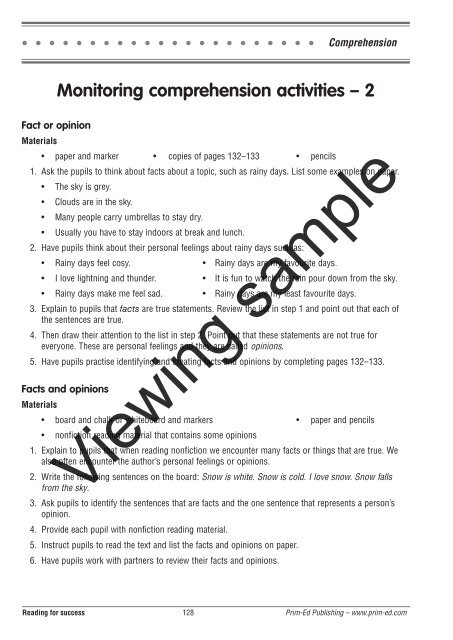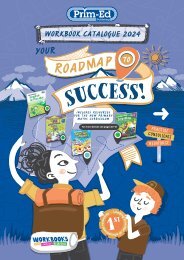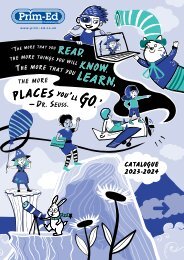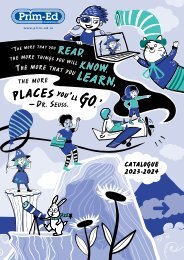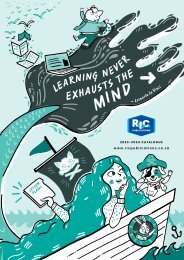PR-6219UK Reading for Success - Book 4
You also want an ePaper? Increase the reach of your titles
YUMPU automatically turns print PDFs into web optimized ePapers that Google loves.
Comprehension<br />
Monitoring comprehension activities – 2<br />
Fact or opinion<br />
Materials<br />
• paper and marker • copies of pages 132–133 • pencils<br />
1. Ask the pupils to think about facts about a topic, such as rainy days. List some examples on paper.<br />
• The sky is grey.<br />
• Clouds are in the sky.<br />
• Many people carry umbrellas to stay dry.<br />
• Usually you have to stay indoors at break and lunch.<br />
2. Have pupils think about their personal feelings about rainy days such as:<br />
• Rainy days feel cosy. • Rainy days are my favourite days.<br />
• I love lightning and thunder. • It is fun to watch the rain pour down from the sky.<br />
• Rainy days make me feel sad. • Rainy days are my least favourite days.<br />
3. Explain to pupils that facts are true statements. Review the list in step 1 and point out that each of<br />
the sentences are true.<br />
4. Then draw their attention to the list in step 2. Point out that these statements are not true <strong>for</strong><br />
everyone. These are personal feelings and they are called opinions.<br />
5. Have pupils practise identifying and creating facts and opinions by completing pages 132–133.<br />
Facts and opinions<br />
Materials<br />
• board and chalk or whiteboard and markers • paper and pencils<br />
• nonfiction reading material that contains some opinions<br />
1. Explain to pupils that when reading nonfiction we encounter many facts or things that are true. We<br />
also often encounter the author’s personal feelings or opinions.<br />
Viewing sample<br />
2. Write the following sentences on the board: Snow is white. Snow is cold. I love snow. Snow falls<br />
from the sky.<br />
3. Ask pupils to identify the sentences that are facts and the one sentence that represents a person’s<br />
opinion.<br />
4. Provide each pupil with nonfiction reading material.<br />
5. Instruct pupils to read the text and list the facts and opinions on paper.<br />
6. Have pupils work with partners to review their facts and opinions.<br />
<strong>Reading</strong> <strong>for</strong> success 128 Prim-Ed Publishing – www.prim-ed.com


